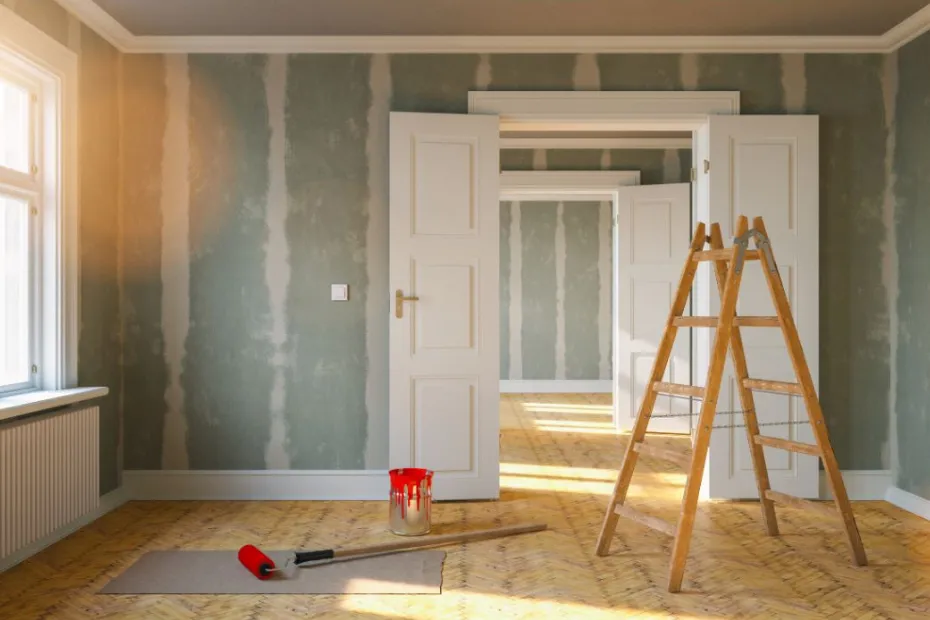Published October 22, 2021 • 5 Min Read
Once their children are grown, many Canadians find moving to a smaller home offers lifestyle — and financial — benefits. Maybe you’re moving to be closer to new grandchildren, or maybe it’s so you can travel or golf more. Smaller spaces mean less maintenance and stuff to clean, and may even be the chance to begin a new chapter in life.
One added benefit of downsizing your home is decluttering and reducing your belongings, but deciding which possessions to keep or throw away while also packing up a household and arranging a big move can be daunting. Here’s how to ensure a stress-free downsizing experience.
Give yourself plenty of time to prepare and pack
There’s tremendous freedom in leaving years’ worth of clutter behind, but you may also have difficulty parting with furniture and other sentimental items. There is plenty to do and many items to pack, so it might seem overwhelming. You can make it easier by breaking it down and taking it one step at a time. After all, you don’t want to take too much with you and then have to pare down your belongings again after you move.
Sell or donate things you’re not taking with you
Family and friends might be eager to take some items off your hands – especially your children as they furnish their own new residences. Once you’ve passed those items on, consider hosting a garage sale to sell extra household stuff, tools and lawn gear, or list items for sale on sites such as Kijiji.ca or Facebook marketplace.
Offer up any leftovers on Freecycle.org, or contact local charities to pick up your unwanted items and distribute them to families in need.
Bonus: Your clutter-free home will look even better in the real estate staging photos.
Arrange to transfer utilities
Some utility companies need 30 days’ notice before closing or transferring your services, so get in touch early. If you’re due to receive a deposit back, make sure to ask for it. Let the new owners of your home know when utilities will be cut off so they can switch over the account.
Bring the memories with you, not the stuff
“Take lots of photos of your home before you start packing,” Tonya says. “That way you take cherished memories with you — like your child’s height chart drawn in a doorway or the fireplace where you gathered each Christmas – without taking the actual items. This can save you space and preserve your memories.” You can also use these photos as a tool to decide what to take with you: When you look at them, you’ll likely see the things you love most first, which can help you choose what to part with.
Take cuttings from the garden so you can transplant some of your favourite plants – many perennials do well in containers if you only have a balcony at your new place.
Measure your new space to see what fits
Because you won’t have space for all your furniture, you’ll want to figure out which pieces will fit, rather than moving a huge sofa only to discover there’s no room for it. In fact, don’t move anything that doesn’t have a designated spot in your new home.
You can sell or donate your furniture before the big move: First-time homebuyers are always in the market for good-quality items.
Work room by room
Set up bins labelled ‘Keep,’ ‘Store,’ ‘Donate’ and ‘Toss’ and work your way through the house. If you haven’t used something in the past year, get rid of it. When you find duplicate items — and you will, especially in the kitchen — keep the one in the best condition, and ditch the others.
As you fill up your ‘Keep’ boxes, label them to make moving and unpacking easier. Seasonal items will already be in ‘Store’ boxes, so you’ll be able to find them quickly when you need them. “It’s also a good idea to have ‘Pack Me Last’ and ‘Open Me First’ boxes with essentials. And if you’re worried about delicate items, moving companies can pack those carefully for you,” Tonya says.
Purge your paperwork and embrace technology
It’s safe to get rid of tax returns older than seven years and to shred any bank statements or utility records that can be found online. Go digital whenever possible: Scan receipts and other records onto an external drive, then toss the paper copies. You can also convert home movies, photos and music into digital files, freeing up tons of space in your new home.
Put together important information for the new owners
You know every inch of your home and how it works, so consider leaving a written guide for the new owners so they’ll know how to operate everything. Set up a file box with manuals and warranties for any appliances sold with the house. A garden plan with a list of perennials is a nice touch, too, along with photos of flowers in bloom.
Host a farewell party for your neighbours
Say a proper goodbye to neighbours by having an open house before you move. Since you might have just talked to each other over the fence, exchange contact information and add them to your social media networks so you can keep in touch.
Look at this chapter as the next journey: Be patient with yourself and eliminate the stress by getting started well in advance. And you don’t have to do it alone. Recruit family and friends, or professional movers to help clear out your home. Moving into a home that better suits your needs now, with less stuff, can even help you enjoy life more.
This article is intended as general information only and is not to be relied upon as constituting legal, financial or other professional advice. A professional advisor should be consulted regarding your specific situation. Information presented is believed to be factual and up-to-date but we do not guarantee its accuracy and it should not be regarded as a complete analysis of the subjects discussed. All expressions of opinion reflect the judgment of the authors as of the date of publication and are subject to change. No endorsement of any third parties or their advice, opinions, information, products or services is expressly given or implied by Royal Bank of Canada or any of its affiliates.
Share This Article






